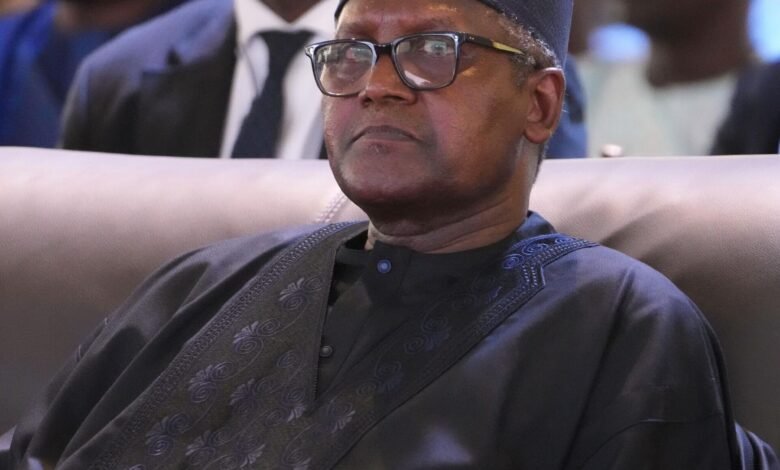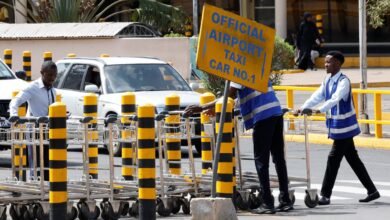
Africa’s millionaire population is projected to grow by 65% over the next 10 years, a move which will position the continent as a new frontier for global wealth creation.
This is according to the Africa Wealth Report 2025 by Henley & Partners and New World Wealth.
Sub-Saharan Africa is expected to record economic growth of 3.7% in 2025 and 4.1% in 2026, outpacing the U.S. and Europe. This expansion is driving the rise of high-net-worth individuals (HNWIs) across the region.
Currently, Africa is home to 25 billionaires, 348 centi-millionaires, and 122,500 millionaires. South Africa leads the rankings with 41,100 millionaires, followed by Egypt (14,800), Morocco (7,500), Nigeria (7,200), and Kenya (6,800).
The shifts, however, are uneven. Mauritius has seen millionaire numbers climb 63% in the past decade, while Morocco added 40%. By contrast, Nigeria’s millionaire population shrank by 47%, and South Africa’s dipped 6%.
Emerging wealth hubs are also redrawing the map, where Mauritius’ Black River region recorded a 105% jump in resident millionaires, while Marrakech grew 67%, and South Africa’s Cape Whale Coast surged 50%.
One of the strongest drivers of this transformation is investment migration. Countries such as Mauritius, Egypt, and São Tomé and Príncipe are using residence and citizenship programs to attract foreign capital into local development projects.
Also Read: Why Kenya’s Wealthy Are Moving Away from Lifestyle Assets and Going Local
Demand from African investors is also rising. Henley & Partners reported enquiries from 23 African countries in the last 18 months, up from 12 in 2020.
South Africa and Egypt are now among the top 10 global markets for residence and citizenship requests.
For global investors, Africa is increasingly attractive. Mauritius’ residence program, for instance, has underpinned its wealth boom, while Egypt’s citizenship program—starting at $250,000—and São Tomé’s entry-level $90,000 option illustrate how governments are raising development capital without taking on debt.
Beyond finance, technology and climate change are shaping capital flows. Google’s $25 million fund for African food security signals growing tech investment, while climate-linked migration programs could channel funds into renewable energy and sustainable infrastructure.
African Continental Free Trade Area (AfCFTA) could lift 30 million people out of poverty and increase incomes by $450 billion by 2035. Well-structured investment migration frameworks could accelerate this impact by retaining local wealth and attracting long-term foreign capital.






That’s a solid point about risk management – crucial for any strategy! Seeing platforms like arionplay legit offer diverse games-slots, fishing, live tables-shows they understand player preference is key. Good analysis!
Interesting points about responsible gaming! It’s crucial platforms like legend link maya app prioritize KYC & AML – a secure experience builds trust. Compliance is key for long-term sustainability, don’t you think?
It’s crucial to remember responsible gaming, especially with platforms like Xbjili gaining traction. Seeing robust security is a good sign – check out xbjili slot options if you’re curious, but prioritize safety first! A smooth app download is key too.
Zaproxy dolore alias impedit expedita quisquam.
Hi there! This post couldn’t be written any better! Reading through this post reminds me of my previous room mate! He always kept talking about this. I will forward this article to him. Pretty sure he will have a good read. Thank you for sharing!
After examine a few of the blog posts in your website now, and I really like your way of blogging. I bookmarked it to my bookmark website checklist and will probably be checking back soon. Pls check out my web site as effectively and let me know what you think.
I truly appreciate this post. I’ve been looking everywhere for this! Thank goodness I found it on Bing. You’ve made my day! Thx again!
Great write-up, I am regular visitor of one?¦s site, maintain up the nice operate, and It is going to be a regular visitor for a long time.
**mindvault**
mindvault is a premium cognitive support formula created for adults 45+. It’s thoughtfully designed to help maintain clear thinking
Wonderful work! This is the type of info that should be shared around the net. Shame on the search engines for not positioning this post higher! Come on over and visit my site . Thanks =)
Hiya very nice blog!! Man .. Beautiful .. Superb .. I will bookmark your web site and take the feeds also…I’m satisfied to search out so many helpful information here within the put up, we’d like work out more strategies in this regard, thanks for sharing.
you have a great blog here! would you like to make some invite posts on my blog?
I’m truly enjoying the design and layout of your blog. It’s a very easy on the eyes which makes it much more enjoyable for me to come here and visit more often. Did you hire out a developer to create your theme? Superb work!
With the whole thing which appears to be developing within this specific area, your points of view are actually somewhat radical. Even so, I appologize, because I can not give credence to your entire plan, all be it radical none the less. It would seem to us that your comments are actually not completely validated and in fact you are generally yourself not even thoroughly certain of your assertion. In any case I did enjoy reading it.
I’ll immediately grab your rss as I can not find your e-mail subscription link or e-newsletter service. Do you’ve any? Please let me know so that I could subscribe. Thanks.